Average sizes and life expectancy for this breed:
Bombay cats are ideal feline companions for anyone dreaming of having a panther, but maybe just a bit smaller and less bitey! These cats are intelligent felines that enjoy playing and will thrive with families who are keen to teach them tricks, play games, and offer plenty of interactive toys.
Bombay cats are bred primarily to look like Indian black panthers. They have been created by mixing the Burmese cat breed with the black American shorthair. The resulting breed does indeed resemble the big jungle cat, without having the wild blood in its genes.
Bombay’s are easy-going and carefree cats who take life in their stride. They enjoy greeting guests and get along great with children, cat-friendly dogs, and other cats. These cats also have a reputation for being lap cats as they are attention seekers, as well as heat seekers. Basically, Bombay cats love attention and want to be involved in everything their human companions do! However, it is important to note that in these interactions, your Bombay cat will expect to be the one in charge! It's not uncommon for Bombay’s to learn to walk on a leash or play interactive games such as fetch.
The Bombay is a smooth looking, medium-sized cat with a loving and outgoing nature. They have gorgeous, unique eyes that are copper or gold in colour, and luxurious, glossy black coats that set them apart from other cat breeds. Bombay’s are fairly new to the cat world so they have not yet become as popular as many other more common breeds however, they are gaining popularity for their striking appearance and affectionate natures. They were developed during the 1950s by crossing a sable Burmese with a black coated American Shorthair, by long-time cat breeder Nikki Horner.
Bombay cats are well-suited to any household with a family who will love them and devote time to care for their needs. It is recommended to keep these cats indoors to protect them from accidents, wild animals, cars, and to prevent them from catching diseases from other cats.
See available kittens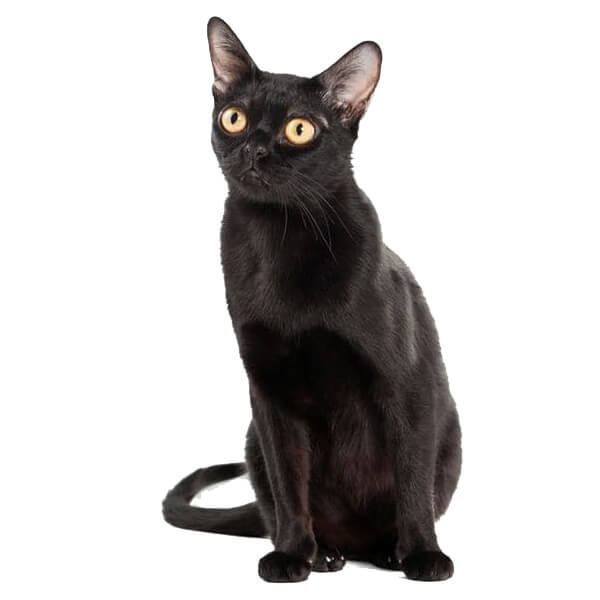

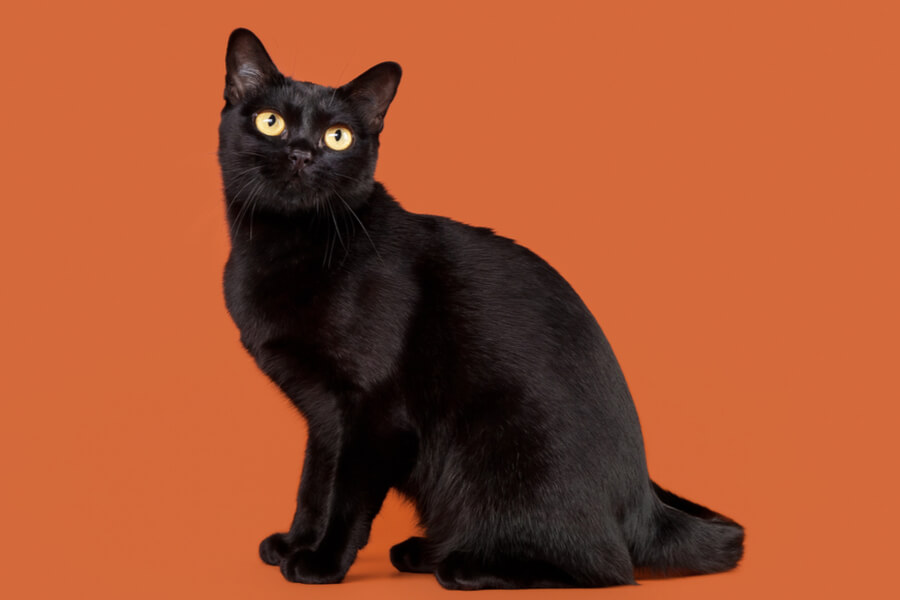


The Bombay was first bred in 1958 by cat breeder Nikki Horner from Louisville, by crossing a sable Burmese with a Black American Shorthair. Her goal was to create a silky, sleek black cat with a well-built body and sociable character. The resulting cat was a beautiful slender black cat that reminded Horner of the majestic black panther native to India, so she named the breed Bombay after the Indian city. British cat breeders achieved the same look by crossing Burmese cats with black domestic shorthairs.
The Bombay breed was officially recognized by the Cat Fanciers’ Association in 1970, and by The International Cat Association in 1979. According to the Cat Fanciers' Association, Bombay’s are still allowed to be outcrossed to sable Burmese and Black American Shorthairs to maintain their body type and coat texture. However, the Bombay is still classed as a true breed of its own, with its own unique appearance and loving temperament.
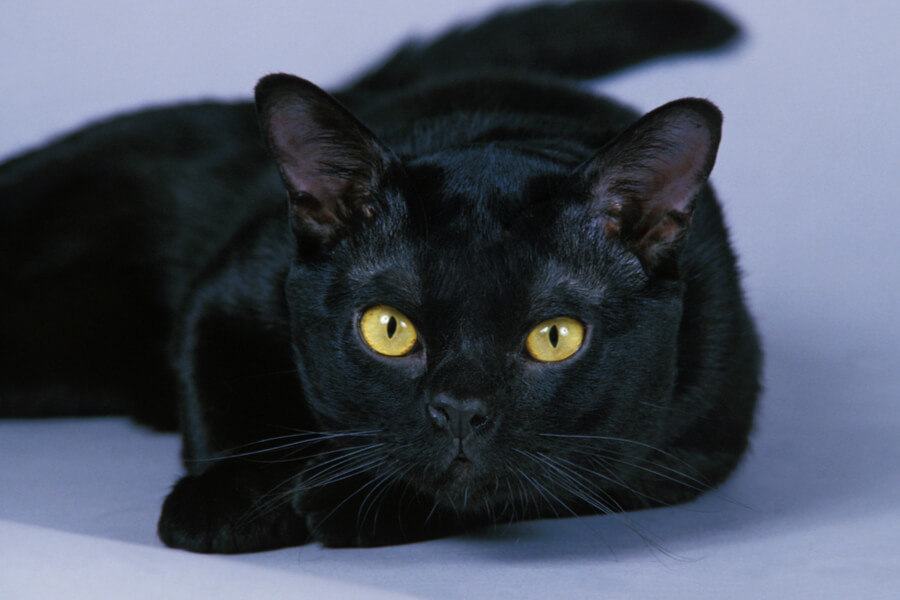
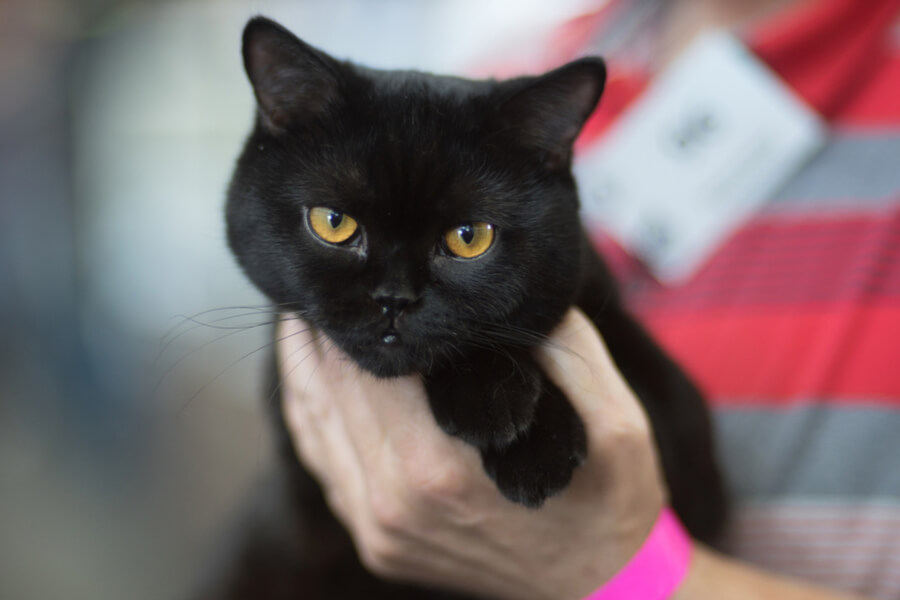
Bombay cats really do look like little black panthers! The coat of this breed is a solid jet-black colour and very glossy. So much so, that many cat breeders compare the coat to patent leather. Bombays are truly stunning medium-sized cats with large vivid eyes that range from rich gold to copper in colour. They are extremely well-balanced, muscular, and agile felines which just adds to their "mini-panther" appearance. Their round heads are medium-sized with no sharp angles present. Their faces are full and their eyes are set wide apart on the head. These cats have medium-sized ears that are rounded at the tips and are set wide apart on the head, which gives them their distinct alert look. Bombay cats have firm, well-rounded chins and short broad muzzles. Their noses are slightly rounded at the tip, and their necks are well-muscled and short to medium in length.
These stunning cats have medium-sized bodies that are compact, with full, well-rounded chests and strong legs that are well in proportion to the rest of their bodies. Their paws are rounded and their tails are slightly long, tapering towards a blunt tip.
A Bombay's coat has a beautiful jet black close-lying coat that is short, fine, and satin-like to touch. The only acceptable colour is rich black, with each hair being black from the root to the tip. However, the colour under their bellies tends to be much lighter. A Bombay’s coat does not attain its full colour until the cat is around two years old.
These cats are lively and affectionate. Bombay’s love people and can adapt well to various environments and lifestyles. The calm temperament of this breed makes them good cats for apartments, and they are amenable to life with other pets. However, Bombay cats will always want to be in charge! So, expect to find your Bombay cat taking over the warmest spot in your home, including your bed!
While adult Bombay cats are easy-going, they tend to be very playful and enjoy daily play sessions. They appreciate being adored by their human companions and love having their bellies rubbed.
Bombay’s are very solid cats both in appearance and feel. Their muscular physique also gives them great strength. They are excellent climbers and very agile on their feet so they should have cat trees and perches available. Because of their slender build, these cats are at risk of obesity so you will need to ensure you stick to a strict feeding regime and make sure you offer plenty of opportunities for exercise.
Like other cat breeds, Bombay cats like a routine and do not like changes in their environment. They want to be fed at the same time each day and can become stressed when furniture is rearranged.
Bombay cats form strong bonds with their human companions. They are an incredibly social breed so do not like being left alone for any length of time. Because of this, these cats are well-matched to families where at least one person is at home for most of the day. Bombay cats can become depressed if left alone for too long so it is important to ensure that they always have a companion. Luckily, Bombay cats enjoy being around other animals too, including dogs and other cats. However, it is still important to supervise any interactions just to be safe.
In short, these friendly cats enjoy sharing their environment with other animals, particularly if they have grown up together. They are also recognized as being very tolerant of young children, which has made them popular with families. Bombay cats are known to be fairly chatty when they want something; whether it's food or a cuddle! However, they are still much quieter and less demanding than their Burmese cousins which is probably caused by the calming influence of the American Shorthair breed.
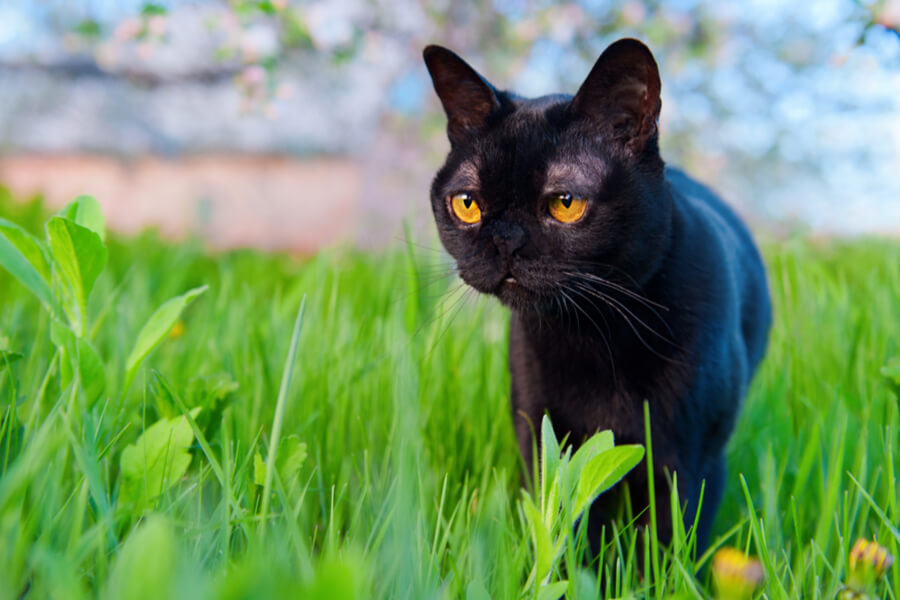
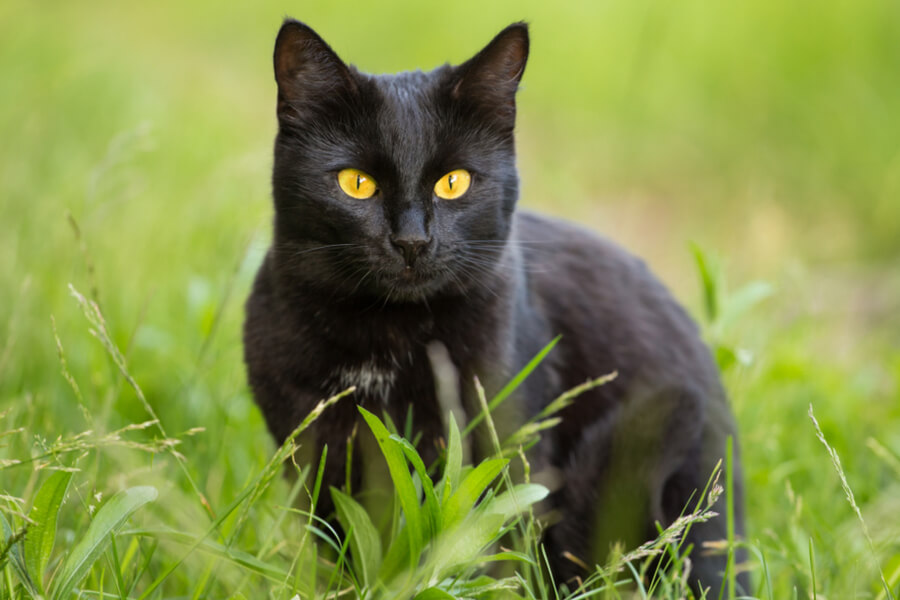
Bombay cats love to play interactive games with their families and are adept at learning new tricks and playing fetch. Some have even learned to walk on leads. This cat breed is bright, intelligent, and loves to play so will blossom with families who are keen to teach them tricks, play games, and provide them with plenty of interactive toys.
Bombay cats are known to be highly intelligent so they love the attention and mental stimulation that comes with clicker training. Challenge their clever minds and keep them focused by teaching them fun games, commands, and tricks. When training, remember to always offer kibble, treats, or fuss as rewards when your kitty learns anything new, to keep his focus and enthusiasm going! Puzzle feeders are also a good option for this breed.
These happy and approachable cats are very affectionate and form strong bonds with their owners. When Bombay’s have been appropriately socialized and trained during kittenhood, they become well-rounded and well-mannered feline companions.
The Bombays’ short, shiny coat is easy to care for with a few strokes of the hand or a slicker brush. Weekly brushing or a rubdown with a chamois will eliminate dead hair, spread vital skin oils and polish your cats' coat to keep it in good condition. A bath is rarely ever needed.
Cats must get used to combs and brushes from an early age to avoid matted fur. There is a wide variety of cat combs and brushes available on the market, depending on what works for you and your cat. You can start with a very soft brush that does not pull at fine kitten fur or damage the skin, and then progress to a firmer and more effective brush that is suited to your cats' coat type. Each time you have finished brushing, it is important to give your cat a small treat to encourage him to build up a positive association with the grooming process.
Daily dental hygiene is best, but weekly teeth brushing is considered to be adequate. Brushing a cats' teeth is important to prevent periodontal disease. To clean their eyes, wipe the corners with a soft, damp cloth to eliminate any eye discharge. Make sure to use a separate part of the damp cloth for each eye to avoid the risk of spreading any eye infection.
In addition, you should also check the ears weekly. If their ears look dirty, wipe them out gently with a cotton ball or soft damp cloth moistened with a vet-approved ear cleaner. If the ear has a foul odour, it is best to contact your vet for treatment.
Litter boxes should always be clean as cats can be very picky about bathroom hygiene. If a litter box is left unclean, your cat may decide to use other places in the house.
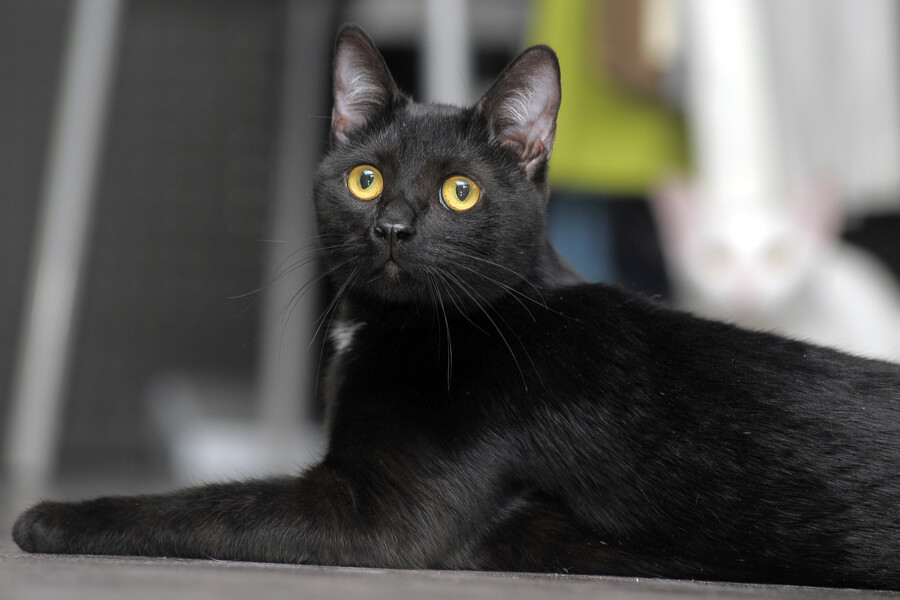
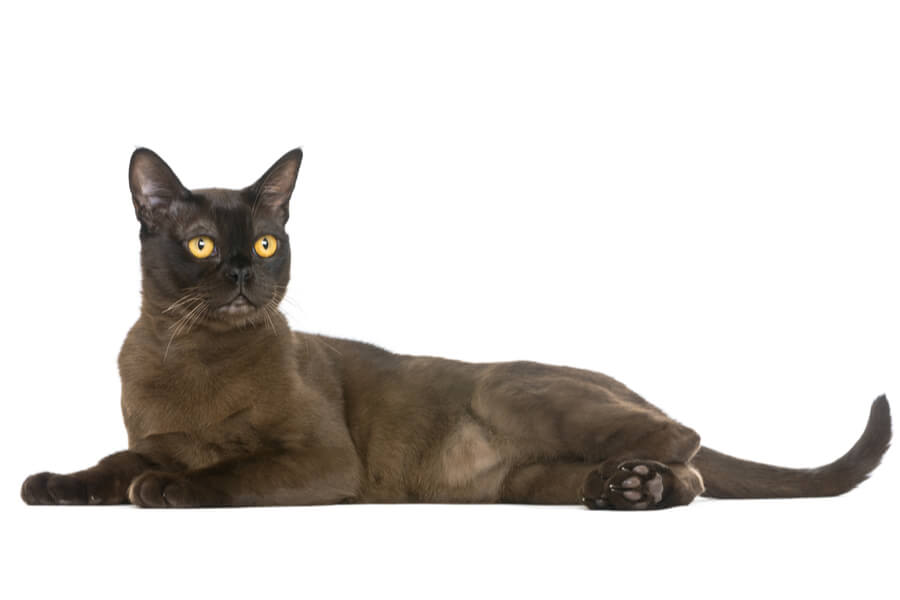
Bombay’s are generally considered to be a relatively healthy cat breed. Their average life expectancy is 12-16 years. However, with proper care, exercise, and a high-quality diet, they can live for up to 20 years. Saying that, there are a few diseases and ailments found in this breed that you need to be aware of. Bombay cats appear to be susceptible to a congenital disease called craniofacial defect, which is also seen in Burmese cats. Other health conditions that are seen in Bombay cats include:
The sociable and welcoming Bombay loves to play and interact with its owners, which is why these cats are an excellent choice for families with children. The calm disposition of this breed means that they are more likely to walk away than scratch someone if play gets a little rough. However, it is still important to teach young children how to interact with cats safely and calmly to prevent incidents.
Bombays are generally content living with other cats, especially others of the same breed. However, extra care must be taken when introducing a Bombay cat to dogs, just in case the dog does not get on well with its feline counterpart. It is recommended that you introduce pets gradually and in a controlled environment to prevent the risk of incidents and territorial behaviour. Furthermore, it's best to closely supervise any cat when it is around smaller pets, especially with breeds that have a high prey drive.
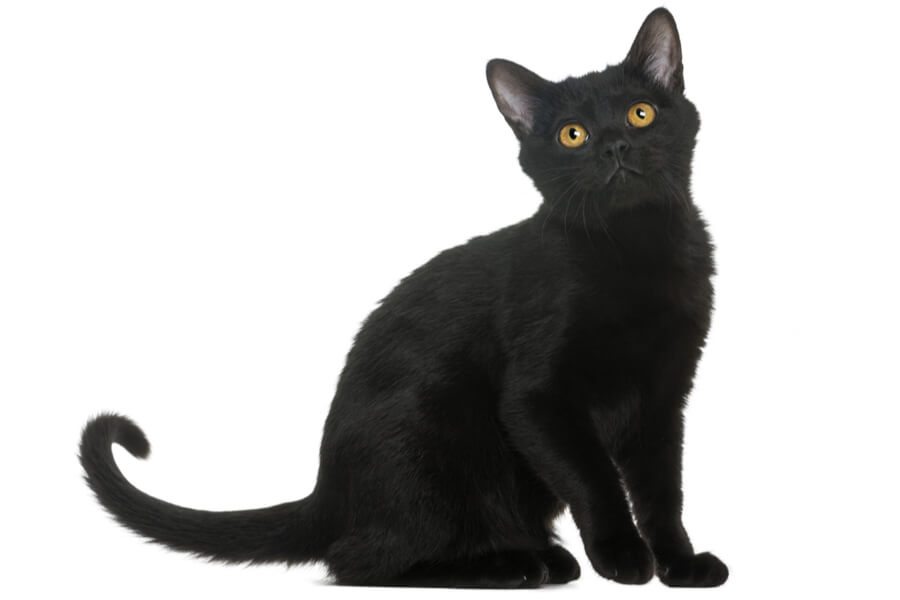

We can connect you with Breeders that are specialized in this particular breed.
See available kittens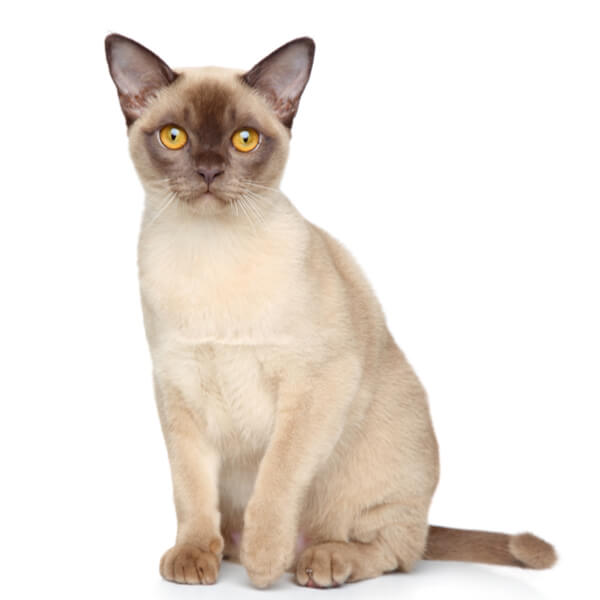
Myanmar
Size : Medium
Coat : Short
Registration : TICA, CFA, FIFe
Vocality : Medium
Hypoallergenic : Yes
Grooming : Once a Week
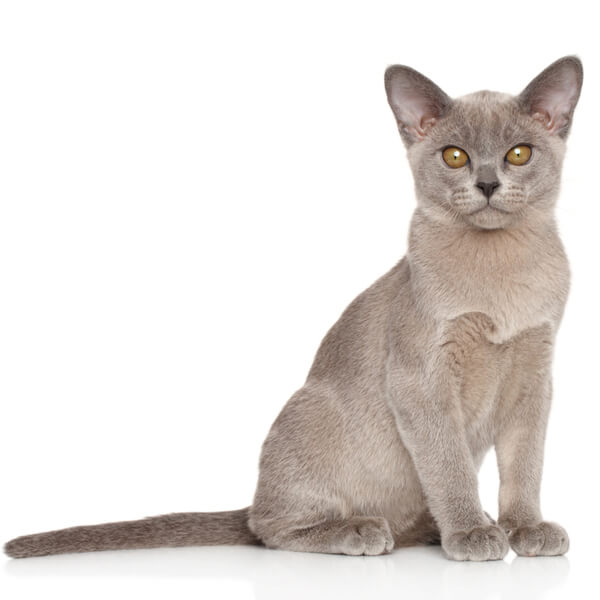
Myanmar
Size : Medium
Coat : Short
Registration : CFA
Vocality : High
Hypoallergenic : Yes
Grooming : Once a Week
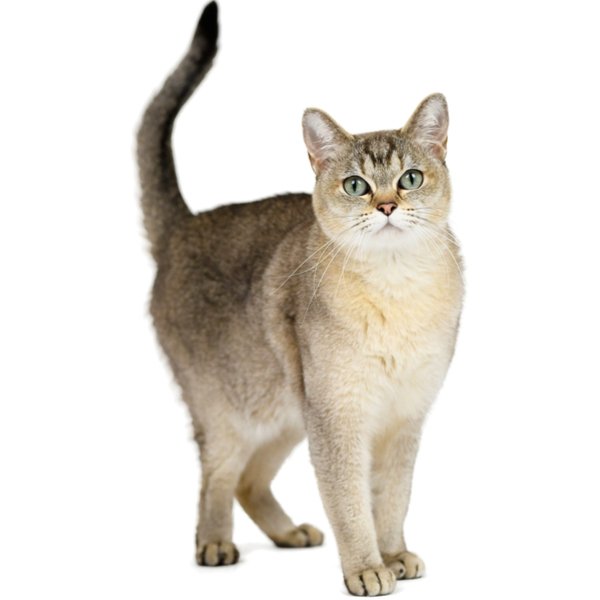
United Kingdom
Size : Medium
Coat : Short
Registration : GCCF, TICA, CFA, FIFe
Vocality : Low
Hypoallergenic : No
Grooming : Once a Week
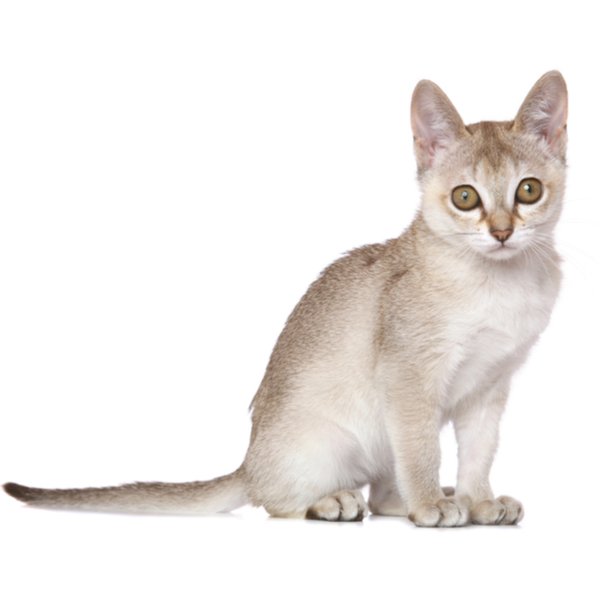
Singapore
Size : Small
Coat : Short
Registration : GCCF, TICA, CFA, FIFe
Vocality : High
Hypoallergenic : No
Grooming : Once a Week


Need some advice?
Whether you're a first time pet owner, an experienced pet owner, a new or long-time breeder, or just curious about pets, we've got you covered!
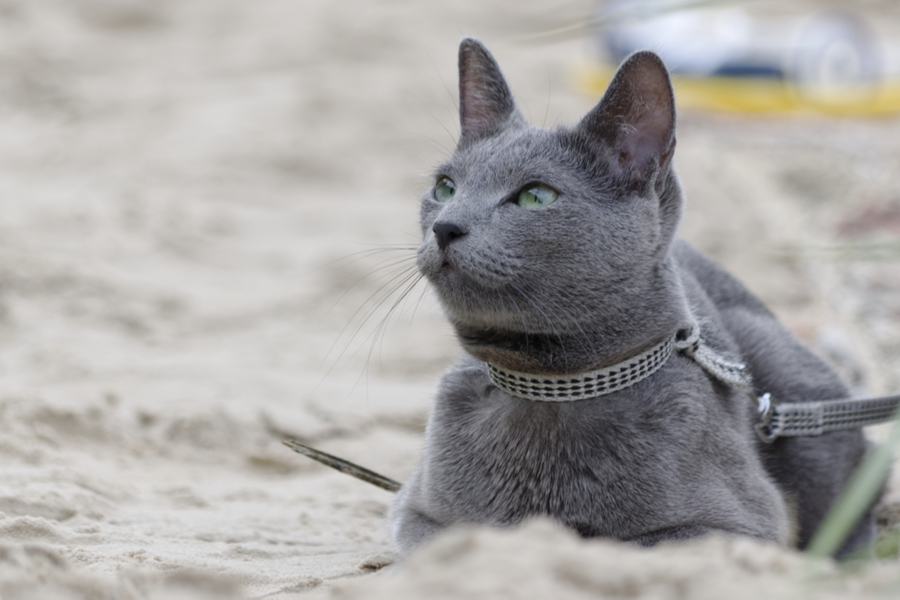
January 17, 2024
What Is The Personality Of Russian Blue Cats?
Russian Blue cats are most known for their distinctive shimmery blue-silver coat and piercing green eyes. However, this breed’s calm and gentle temperament is what makes them shine the most in the feline world.
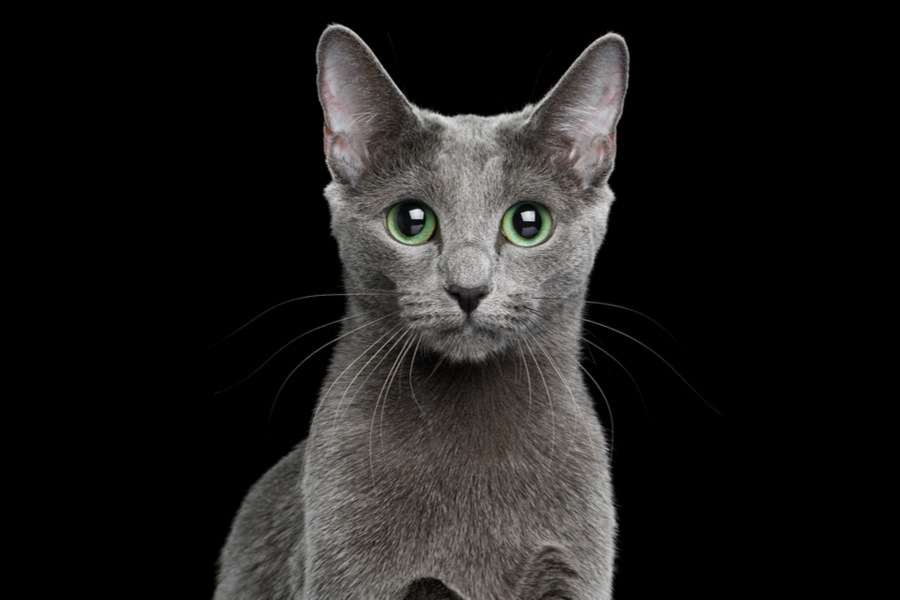
January 17, 2024
10 Facts About Russian Blue Cat Breed
Russian Blues are one of the most aesthetically stunning cat breeds, with a gorgeous plush silvery coat and vibrant green eyes. However, it’s not only their appearance that is beautiful; their nature is too.
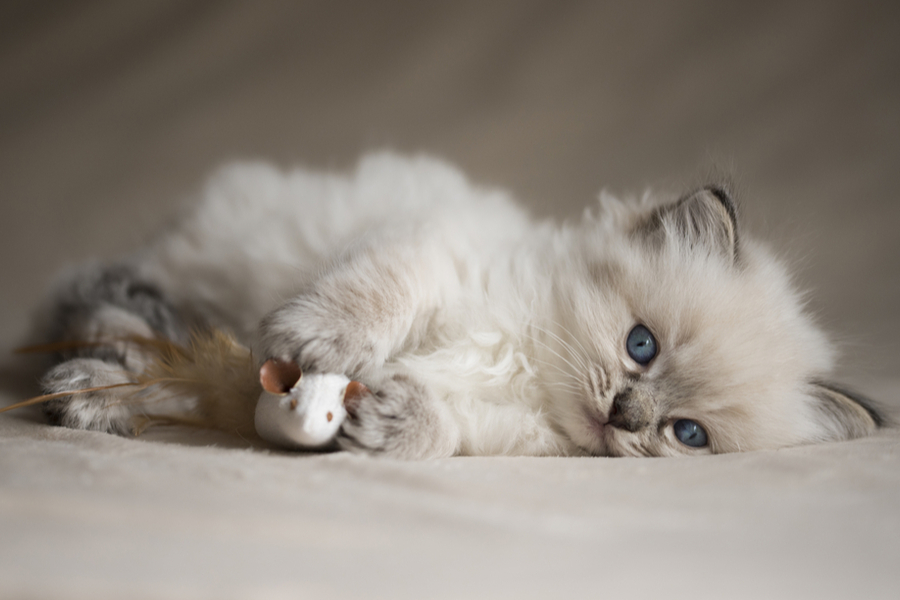
January 17, 2024
How To Choose The Right Cat Breed for You
Cats can make the most fantastic animal companions; they are adorable, friendly, and loving. However, not all felines are created equal. There are many different breeds, of which each has its unique personality traits.
Need some help?
Contact us to speak to our friendly advisor, who will gladly help you find your dream pet!



We are registered in England and Wales under registration number 12568840,
and our registered office is at 58-60 Kensington Church Street, W8 4DB London, England.
© 2023 The Pedigree Paws